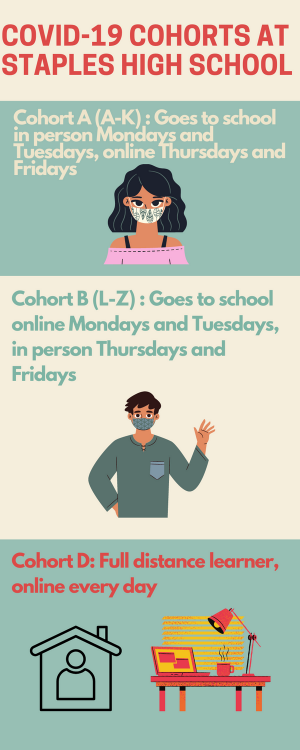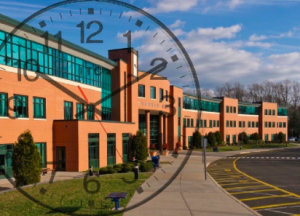Emails from Superintendent should be sent to high school students as well as parents, teachers
At 7:00 a.m, I quickly checked my phone, got tiredly out of bed, brushed my teeth with my eyes still half-closed, picked out my outfit and eaten breakfast. I was all dressed and ready for school at precisely 7:40 a.m. And then my mom came into the kitchen with a gasp exclaiming, “Chloe, you didn’t know? Snow day!”
While I, like anyone, am always happy when my parents tell me there is a snow day, I see a problem in the above scenario that goes deeper than the explained inconvenience. Students are not notified of important messages that pertain to them. In the past year, emails containing vital information about COVID cases, changes in attendance policies, reopenings and, yes, snow days, are sent directly to parents who are expected to inform their children, or worse, not inform them, of the content in the email.
Namely, I see a problem with the emails regarding COVID cases sent solely to parents and teachers. The superintendent sends out periodic emails informing how many positive cases have been reported at each school in the district. While this is important information for parents to know, as they are ultimately responsible for the safety of their own child, students should have easy access to this information, as well. Students should be able to dictate how comfortable they feel attending school when their own health is potentially at risk. While almost certainly well-intended, not allowing this independent decision-making is belittling and borderline condescending.
Particularly in high school as students both desire and are encouraged to function with more autonomy and independence, students should not have to request important information from their parents, like children.
Furthermore, in a quote from an email sent to parents, Superintendent Scarice warned against abusing the Absent but Present Online (APO) option. He outlined his concerns, and concluded, “Parents at the secondary level can anticipate more information on this in the immediate future as it relates to attendance and the earning of credits at the high school level.” This line is truly concerning. I know many people who utilize APO for a variety of reasons, and for them to not receive this update that informs that APO’s could affect attendance or the earning of credits is worrying.
Moreover comes the possibility that parents are either distant from their children or inactive online. I am lucky in that my parents consistently check and read the emails from the school and we constantly communicate, but these are two traits that could easily be absent in a parent. In the absence of these good habits, students might not only be put in an inconvenient environment, but even a completely oblivious one.
So the problem is bigger than snow days. Defaulting emails regarding health and safety and future plans pertaining to students is wrong, and deprives high school students of the autonomy and respect that they deserve. When students can take AP classes, drive and sometimes even vote, they should not have to ask their mom and dad to forward them the emails written by their own superintendent about their own school that affect them. This is a small problem with big implications. It would be a simple fix. Let’s make it.

Public Relations Director Chloe Murray ’22 enjoys her life as a twin and an aspiring journalist.
“We’re super close and we’re very similar people,”...




















































